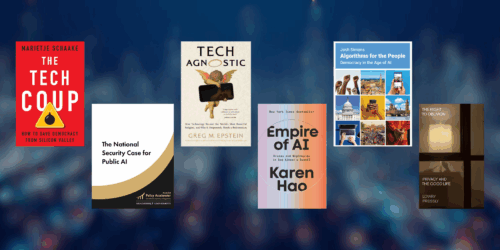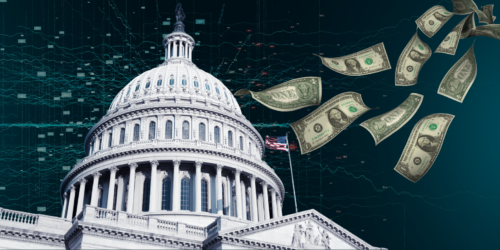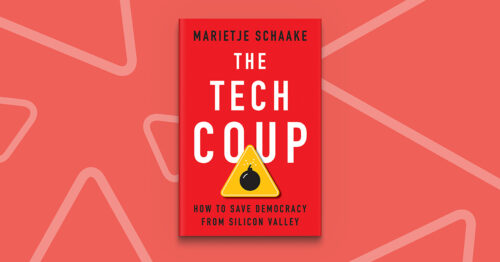
Danielle Allen
James Bryant Conant University Professor
A part of the Allen Lab for Democracy Renovation, GETTING-Plurality is a multi-disciplinary research network linking philosophers, social scientists, computer scientists, legal scholars, and technologists
Governance of Emerging Technology and Tech Innovations for Next-Gen Governance (GETTING-Plurality) is a multi-disciplinary research network linking philosophers, social scientists, computer scientists, legal scholars, and technologists. We are building a unique collaborative that unites tech ethics initiatives at Harvard University with external impact partners across higher education and the tech industry, bringing philosophers and ethicists to the table for every project.
The network is housed in the Allen Lab for Democracy Renovation.
We’re at a pivotal moment. To promote universal well-being, we need to promote the responsible governance of innovation and responsibly innovate the way we govern.
GETTING-Plurality seeks to advance understanding of how to shape, guide, govern, and deploy technological development in support of democracy, collective intelligence, and other public goods. Our focus is on how to do so, given the plural nature of human intelligence. We pursue foundational analysis and theory, field-building, and policy development to foresee and mitigate potential harms to democracy and to strengthen the public benefit and democracy-supportive effects flowing from technology innovation.
This network will convene multi-disciplinary teams to tackle questions of how to govern emerging technologies and how to deploy emerging technologies for governance from a multiplicity of viewpoints and expertise. Some of our research areas include:
James Bryant Conant University Professor
PhD, Senior Lab Director
Associate Director for Technology & Democracy
Senior Fellow, Allen Lab for Democracy Renovation;
Co-Director and Co-Investigator, GETTING-Plurality Research Network
Distinguished Fellow, Center on Privacy and Technology, Georgetown Law
Assistant Professor of Political Science and International Affairs, Northeastern University
Professor, Northeastern University
Non-Resident Senior Fellow, Allen Lab for Democracy Renovation
July 2024-June 2026
Junior Fellow, Harvard Society of Fellows
Co-Founder, Collective Intelligence Project
Researcher, Microsoft Research
Founder, Equiano Institute
Faculty Member, MIT and National Tsing Hua University
Professor of Philosophy, Australian National University
Research Scientist, Brigham and Women's Hospital and Harvard Medical School
Professor, Santa Fe Institute
Researcher & Lawyer
Founder, Remake Africa & Plurality Lead, School of Politics, Policy and Governance
Affiliate, Berkman Klein Center & Affiliate, Centre for the Governance of AI
Senior Fellow, Allen Lab for Democracy Renovation
Strategy, Microsoft
Postdoctoral Researcher, Meta FAIR & Affiliate, Berkman Klein Center
Faculty Director, Carr Center for Human Rights Policy & Professor, Harvard Kennedy School
Adjunct Lecturer in Public Policy
Co-Founder, Collective Intelligence Project
Physician Instructor and Clinical Informaticist, Rush University Medical Center
EthicAI and Former Visiting Fellow, Allen Lab for Democracy Renovation
Senior Fellow, Allen Lab for Democracy Renovation & Fellow, M-RCBG
Research Lead, Microsoft Research, Plural Technology Collaboratory & Founder, RadicalxChange Foundation
Postdoctoral Fellow in Psychology and Economic Theory, Harvard University
Former Co-Head of Corporate Strategy, Microsoft
PhD Candidate in Political Science, Yale University
PhD Candidate in Government, Harvard University
Researcher, Harvard College
PhD Candidate in Economics, MIT
PhD Candidate, King's College London
Feature
This list of resources, curated by the GETTING-Plurality Research Network at the Allen Lab for Democracy Renovation, highlights emerging ideas at the intersection of technology and democracy.
Additional Resource
The bipartisan Utah Digital Choice Act aims to reform the social media ecosystem by giving users more choice and ownership over their personal data, while encouraging platform innovation and competition.
Policy Brief
The GETTING-Plurality Research Network submitted a public comment on the Development of a 2025 National Artificial Intelligence Research and Development Strategic Plan.
Policy Brief
The GETTING-Plurality Research Network submitted a comment to Representative Trahan’s Request for Information to modernize the Privacy Act of 1974.
Commentary
Allen Lab for Democracy Renovation Fellow Dr. Shlomit Wagman lays out a framework to address the threats artificial intelligence poses to global security and democratic institutions.
Additional Resource
In a recent piece for Tech Policy Press, Allen Lab Senior Fellow Alex Pascal and Nathan Sanders outline how US states are well-positioned to lead the development of Public AI. State governments can act as “laboratories of twenty-first century democracy” to experiment with AI applications that directly benefit citizens.
Additional Resource
Over the past several weeks, the Department of Government Efficiency (DOGE) within the Trump Administration has been embedding staff in a range of United States federal agencies. These staff have gained access to data maintained by the federal government. This guide explains what is in the data, what DOGE is doing with it, and why it matters to all Americans.
Policy Brief
The GETTING-Plurality Research Network submitted a public comment on the White House Office of Science and Technology Policy Request for Information on the Development of an Artificial Intelligence Action Plan.
Open Access Resource
This paper aims to provide a roadmap for governing AI. In contrast to the reigning paradigms, we argue that AI governance should be not merely a reactive, punitive, status-quo-defending enterprise, but rather the expression of an expansive, proactive vision for technology—to advance human flourishing.
Video
The Ash Center hosted an online book talk with author Marietje Schaake and discussant Bruce Schneier on Schaake’s latest work, The Tech Coup: How to Save Democracy from Silicon Valley. The discussion was moderated by Danielle Allen, James Bryant Conant University Professor and Director of the Allen Lab for Democracy Renovation.
Additional Resource
The year 2024 was dubbed “the largest election year in global history” with half the world’s population voting in national elections. Earlier this year, we hosted an event on AI and the 2024 Elections where scholars spoke about the potential influence of artificial intelligence on the election cycle– from misinformation to threats on election infrastructure. This webinar offered a reflection and exploration of the impacts of technology on the 2024 election landscape.
Earlier this year, the Allen Lab for Democracy Renovation hosted a convening on the Political Economy of AI. This collection of essays from leading scholars and experts raise critical questions surrounding power, governance, and democracy as they consider how technology can better serve the public interest.
Additional Resource
As a part of the Allen Lab’s Political Economy of AI Essay Collection, David Gray Widder and Mar Hicks draw on the history of tech hype cycles to warn against the harmful effects of the current generative AI bubble.
Additional Resource
As a part of the Allen Lab’s Political Economy of AI Essay Collection, Emily S Lin and Marshall Ganz call on us to reckon with how humans create, exercise, and structure power, in hopes of meeting our current technological moment in a way that aligns with our values.
Additional Resource
As a part of the Allen Lab’s Political Economy of AI Essay Collection, Tessel van Oirsouw explores how the EU should pursue “mission-oriented industrial policy” to align its technological development with its cross-sector strategic objectives.


















































